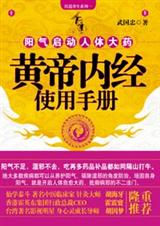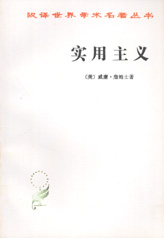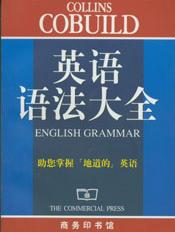牛津实用英语语法-第88部分
按键盘上方向键 ← 或 → 可快速上下翻页,按键盘上的 Enter 键可回到本书目录页,按键盘上方向键 ↑ 可回到本页顶部!
————未阅读完?加入书签已便下次继续阅读!
I’d hang on to that old coat if I were you.It might be useful.
如果我是你,我就不放手那件旧外衣。它可能还用得着。
hold
hold off(intr)保持在一段距离之外,不来到(指雨):
The rain fortunately held off till after the school sports day.
幸亏雨直到学校运动会开过了才下。
hold on(intr) 等待(特指打电话时):
Yes,Mr Pitt is in.If you hold on for a moment I’ll get him for you.
对,皮特先生在。请您等一会儿,我给您找他听电话。
hold on/out(intr)(不顾艰苦或危险而)坚持,坚持忍受下去:
The survivors on the rock signalled that they were short of water butcould hold out for another day.
岩石上的幸存者发信号说他们缺水了,但还能坚持一天。
The strikers held out for six weeks before agreeing to arbitration.
罢工工人坚持了六周,才同意接受仲裁。
hold up(tr)
(a) 以威胁或暴力使人停止向前走(时常由于想抢劫):
The terrorists held up the train and kept the passengers as hostages.
恐怖分子强行制止火车前进,并把乘客劫为人质。
Masked men held up the cashier and robbed the bank.(held him up)
有几个蒙面人用武器迫使出纳员就范,把银行给抢了。
(b)使停止,使延迟(常用于被动语态):
The bus was held up because a tree had fallen across the road.
因为有一棵大树横倒在路上,公共汽车停下了。
join
join up(intr)参军,应征从军:
When war was declared he joined up at once.
一宣战,他马上参军。
jump
jump at(tr)热情地接受(一种建议或一次机遇):
He was offered a place in the Himalayan expedition and jumped at thechance.
人家向他提议让他参加喜马拉雅山考察队,他求之不得地接受了。
keep
keep somebody back(宾语在back前面)阻挡,拦阻,制止其前进:
Frequent illnesses kept him back.
经常生病使他进展迟缓。
keep down(tr)压抑,控制:
What is the best way to keep down rats?(keep them down)
控制鼠患的最佳方法是什么?
Try to remember to turn off the light when you leave the room.I am try-ing to keep down expenses.(keep expenses down)
你离开时,要记得熄灯。我在努力控制支出。
keep off(tr/intr)避免在……上践踏,避免来到近旁:
‘Keep off the grass.’
“禁止践踏草地!”(公园里的布告)
keep on 继续,不停歇:
I wanted to explain but he kept on talking and didn’t give me a chance tosay anything.
我本想解释一下,可是他不住嘴地说,不给我说话的机会。
keep out(tr)阻止进入,挡住:
My shoes are very old and don’t keep out the water.(keep the water out/ keep it out)
我的鞋很旧,漏水进去了。
keep out(intr)不许进来,留在外面:
‘Private.Keep out.’
“私人产业。不许进入。”(门上的告白)
keep up(tr)继续保持(努力):
He began walking at four miles an hour but he couldn’t keep up thatspeed and soon began to walk more slowly.(couldn’t keep it up)
他开始以每小时四英里的速度走路,但是无法维持那个速度,不久之后就放慢了脚步。
It is difficult to keep up a conversation with someone who only says‘Yes’and‘No’.
与光说“对”和“不对”的人很难把谈话继续下去。
keep up(intr),keep up with(tr)与某人齐头并进,和某人同速前进:
A runner can’t keep up with a cyclist.
跑步的跟不上骑车的。
The work that the class is doing is too difficult for me.I won’t be able tokeep up(with them).
班上学的东西对我讲是太难了。我跟不上(他们)。
It is impossible to keep up with the news unless you read the newspapers.
你要是不读报,就跟不上时事。
knock
knock off(tr/intr)(一天的活干完之后)歇了,收工,下班(俗语):
English workmen usually knock off at 5。30 or6。00 p.m.
英国工人一般在下午5点半或6点下班。
We knock off work in time for tea.
我们收工后,正好能赶上喝下午茶。
knock out(tr)重击使之晕倒在地:
In the finals of the boxing championship he knocked out his opponent,who was carried out of the ring.(knocked his opponent out/knocked himout)
在拳击锦标赛决赛中,他把对手击昏在地,后者被人抬出了拳击台。
lay
lay in(tr)为自己准备足够的货品等以使其维持一段时间,储备(食物):
She expected a shortage of dried fruit so she laid in a large supply.
她预期果脯会有短缺,所以囤积了一大批。
lay out(tr)为花园、建筑等安排平面设计:
Le Notre laid out the gardens at Versailles.(laid the gardens out/laidthem out)
凡尔赛宫的园林是勒·诺特尔设计的。
lay up(tr)小心地存储以备将来用(指船只等):
Before he went to Brazil for a year,he laid up his car,as he didn’t wantto sell it.(laid it up)
他要到巴西去一年,在此以前他把车子储存起来了,因为他不想把车卖掉。
be laid up(of a person)因病卧床不起:
She was laid up for weeks with a slipped disk.
她因腰椎间盘突出,卧床数周之久。
lead
lead up to(tr)为……做好准备,引出(比喻的用法):
He wanted to borrow my binoculars,but he didn’t say so at once.He ledup to it by talking about birdwatching.
他想借我的望远镜,可又不直接说。他借着谈起观察鸟类的话题引出这件事。
leave
leave off(常为intr)停止(做某件事):
He was playing his trumpet but I told him to leave off because the neigh-bours were plaining about the noise.
他在吹喇叭,可是我告诉他别吹了,因为邻居们都在抱怨太闹了。
leave out(tr)省略,删去:
We’ll sing our school song leaving out the last ten verses.
我们唱校歌要省略最后十节。
They gave each petitor a number;but they left out No.13 as no onewanted to have it.(left No.13 out/left it out)
他们给每个参赛者一个号码;可是他们把13号隔过去了,因为没有人要这个号码。
let
let down(tr)放下来:
When she lets her hair down it reaches her waist.(lets down her hair/lets it down)
她把头发放下来时,头发长抵腰际。
You can let a coat down(lengthen it)by using the hem.
你可以利用下摆把一件外衣放长。
let someone down(宾语在down之前)行动不像某人所期待的,未能执行某一协议,辜负某人:
I promised him that you would do the work.Why did you let me downby doing so little?
我答应他说你会做这工作的。你为什么干得这么少而让我失望呢?
He said he’d e to help me;but he let me down.He never turned up.他本来说过要来帮我;可是他把我涮了。他根本就没有来。
let in(tr)允许进入,放进来:
They let in the ticket…holders.(let the ticket-holders in/let them in)
他们把持票人放进去了。
If you mention my name to the door…keeper he will let you in.
你要是对看门人提我的名字,他会放你进去的。
let someone off(宾语在off之前)不予惩罚:
I thought that the magistrate was going to fine me but he let me off.
我本以为法官会罚我,可是他放了我一马。
let out(tr)
(a)放宽(指衣服):
That boy is getting fatter.You’ll have to let out his clothes.(let hisclothes out/let them out)
那男孩子长胖了。你得把他的衣服放宽一些。
(b)允许走开,放出:
He opened the door and let out the dog.(let the dog out/let it out)
他开门把狗放出去了。
live
live down a bad reputation小心做人以使人忘记自己的不良声誉:
He has never quite been able to live down a reputation for drinking toomuch which he got when he was a young man.(live it down)
他年轻时有酗酒的恶名,至今未能完全挽回声誉。
live in(intr)住在工作的地方(主要用于仆人):
Advertisement:Cook wanted.£140 a week.Live in.
广告:招聘厨师。周薪140镑。供住宿。
live on(tr)以……为主食:
It is said that for a certain period of his life Byron lived on vinegar andpotatoes in order to keep thin.
据说拜仑曾有一段时期为了不发胖靠吃马铃薯和酸醋过日子。
live up tp(tr)维持某种道德、经济或行为标准:
He had high ideals and tried to live up to them.
他有崇高的理想,并力求身体力行。(他试图按照自己的理想而行动。)
lock
lock up a house(tr/intr;常为intr)把房子所有的门都锁上:
People usually lock up before they go to bed at night.
人们夜晚就寝前一般都锁好门窗。
lock up a person or thing 锁在……之内:
She locked up the papers in her desk.(locked the papers up/locked themup)
她把文件锁在书桌抽屉里了。
look
look after(tr)照料:
Will you look after my parrot when I am away?
我不在的时候,你能否替我照看一下我的鹦鹉?
look ahead(intr)考虑未来以便为之做准备:
It’s time you looked ahead and made plans for your retirement.
是你为以后想一想并对退休后的生活做出安排的时候了。
look at(tr)看,望:
He looked at the clock and said,‘It is midnight.’
他看了看钟,说:“午夜了。”
look back(intr),look back on(tr)回顾:
Looking back,I don’t suppose we are any worse now than people were ahundred years ago.
看一看过去,我不认为我们比100年前的人更坏。
Perhaps some day it will be pleasant to look back on these things.
可能将来有一天我们回顾这些事时会感到愉快的。
look back/round(intr)向背后看(字面意义):
Don’t look round now but






